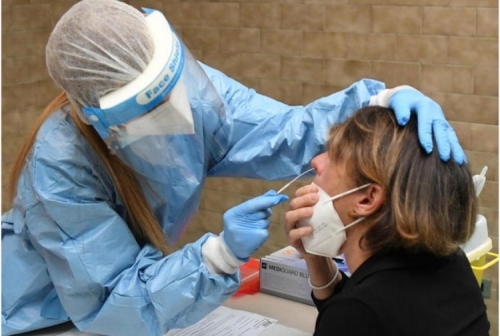Omicron affects the throat more than the lungs and this, according to the scientists, could explain why this variant of Covid is more contagious but less deadly than other strains of the virus. Six studies cited by the Guardian, four of which were published on Christmas Eve, found that Omicron does not harm the lungs as much as Delta and other previous variants.
The studies have not been peer-reviewed. “The consequence of all the mutations that make Omicron different from previous variants is that it may have changed its ability to infect different types of cells,” said Dinan Pillay, professor of virology at University College London.
“Essentially, Omicron appears to be better able to infect the upper respiratory tract, the cells of the throat. So it multiplies more easily in those cells than in the lung,” Pillay commented.
A virus that produces more cells in the throat is more transmissible than a virus that attacks more easily and attacks lung tissue, which is potentially more dangerous but less transmissible. A study in mice from the University of Liverpool’s Molecular Virology Research Group showed that Omicron causes “less serious disease”: infected mice lose less weight, have lower viral loads and suffer less severe pneumonia. US researchers came to the same conclusion last week.
The Neyts lab of the University of Leuven in Belgium found similar results on Syrian hamsters. Researchers at the University of Glasgow Center for Virus Research have found evidence that Omicron has changed the way the virus settles in the body.
The University of Hong Kong already came to those conclusions last December, conducting research led by Professor Ravi Gupta of the University of Cambridge, whose team studied blood samples from vaccinated patients. Studies have found that Omicron is able to evade vaccines, but is less able to enter lung cells.

“Infuriatingly humble alcohol fanatic. Unapologetic beer practitioner. Analyst.”



